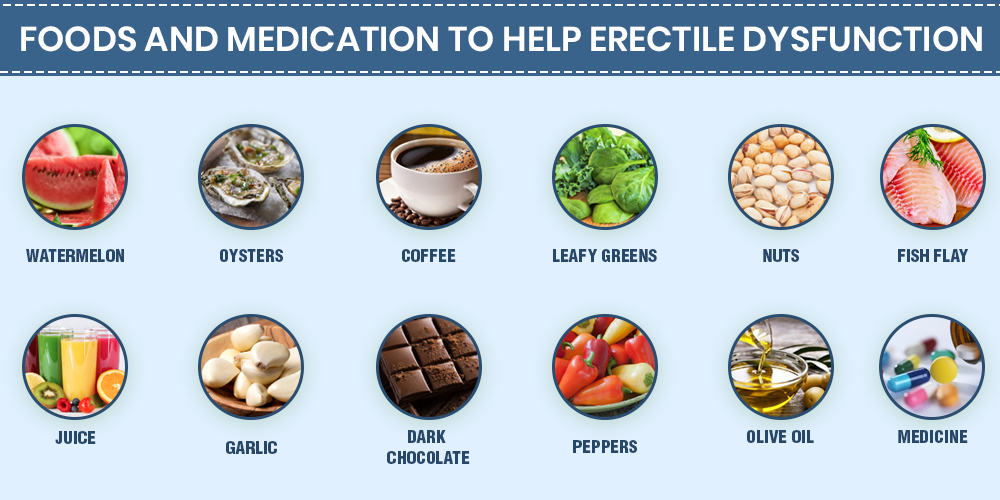Erectile dysfunction (ED) is a condition that affects millions of men worldwide, causing distress and negatively impacting relationships and self-esteem. While there are scientifically proven treatments for ED, many people turn to alternative remedies in search of a solution. One such remedy gaining attention is the idea of placing salt under the tongue to alleviate ED symptoms. But does it really work? Let's dive into the facts and uncover the truth behind this controversial claim.
Erectile dysfunction, often referred to as ED, is a medical condition characterized by the inability to achieve or maintain an erection sufficient for satisfactory sexual performance. This issue can stem from various causes, including physical, psychological, and lifestyle factors. Understanding the root cause of ED is crucial in finding the right treatment, whether conventional or alternative.
With so much information available online, it's easy to get confused about what works and what doesn't. This article aims to provide a comprehensive overview of the relationship between salt under the tongue and ED, backed by scientific evidence and expert opinions. We'll explore the science, the myths, and practical advice for managing ED effectively.
Read also:9th June Zodiac Sign Unlock The Mysteries Of Gemini And Sagittarius
Table of Contents
- The Biological Role of Salt in the Body
- The Theory Behind Salt Under the Tongue
- What Does the Science Say?
- Common Causes of Erectile Dysfunction
- Psychological Factors Contributing to ED
- Lifestyle Changes to Improve ED
- Medical Treatments for Erectile Dysfunction
- Alternative Remedies for ED
- Risks Associated with Salt as a Remedy
- Conclusion and Next Steps
The Biological Role of Salt in the Body
Salt, or sodium chloride, plays a vital role in maintaining bodily functions. It helps regulate fluid balance, nerve transmission, and muscle function. However, excessive salt intake can lead to health issues such as high blood pressure, heart disease, and kidney problems. Understanding the biological role of salt is essential when evaluating its potential effects on ED.
How Salt Affects Blood Pressure
One of the primary concerns with salt consumption is its impact on blood pressure. High blood pressure is a known risk factor for ED, as it can damage blood vessels and reduce blood flow to the penis. Therefore, it's crucial to approach salt-related remedies with caution, especially for individuals with hypertension.
- Salt helps maintain electrolyte balance in the body.
- Excessive salt intake can lead to water retention and increased blood pressure.
- High blood pressure is a common cause of ED.
The Theory Behind Salt Under the Tongue
The idea of placing salt under the tongue as a remedy for ED is based on the belief that it can stimulate certain receptors in the mouth, leading to improved circulation and relaxation of blood vessels. While this theory sounds intriguing, there is limited scientific evidence to support its efficacy.
How Sublingual Absorption Works
Sublingual absorption refers to the process of delivering substances directly into the bloodstream through the tissues under the tongue. This method is often used for medications that require rapid absorption, such as nitroglycerin for angina. However, the effectiveness of salt in this context remains questionable.
Studies have shown that certain substances, like nitroglycerin, can be absorbed sublingually to improve blood flow. However, salt lacks the same pharmacological properties, making its impact on ED unlikely.
What Does the Science Say?
When it comes to ED treatments, scientific evidence is key. While anecdotal reports may suggest that salt under the tongue helps with ED, there is no robust research to substantiate this claim. Let's explore what the scientific community has to say about this topic.
Read also:Laurene Powell Jobs Education A Comprehensive Insight Into Her Academic Journey And Impact
Key Studies on Salt and ED
A review of existing literature reveals no significant studies linking salt under the tongue to improvements in ED. In fact, most experts caution against excessive salt intake due to its potential to exacerbate cardiovascular issues, a common comorbidity with ED.
According to the American Heart Association, reducing salt intake can lower blood pressure and improve overall cardiovascular health, which may indirectly benefit ED sufferers. This highlights the importance of addressing underlying health conditions when managing ED.
Common Causes of Erectile Dysfunction
Understanding the causes of ED is essential in determining the appropriate treatment. ED can result from a combination of physical, psychological, and lifestyle factors. Below are some of the most common causes:
- Physical causes: cardiovascular disease, diabetes, obesity, hormonal imbalances.
- Psychological causes: stress, anxiety, depression, relationship issues.
- Lifestyle factors: smoking, alcohol consumption, lack of exercise, poor diet.
Psychological Factors Contributing to ED
Psychological factors play a significant role in ED, often acting as both a cause and a consequence of the condition. Anxiety, performance pressure, and relationship problems can all contribute to ED, creating a vicious cycle that's challenging to break.
Managing Psychological ED
Therapeutic interventions, such as cognitive-behavioral therapy (CBT) and sex therapy, can be highly effective in addressing psychological ED. These approaches help individuals overcome mental barriers and improve their sexual confidence.
Research published in the Journal of Sexual Medicine highlights the success of therapy in improving ED outcomes, particularly when combined with lifestyle changes and medical treatments.
Lifestyle Changes to Improve ED
Adopting a healthy lifestyle is one of the most effective ways to manage ED. Simple changes, such as regular exercise, a balanced diet, and quitting smoking, can significantly improve symptoms. Below are some lifestyle modifications recommended by health experts:
- Engage in regular physical activity to boost circulation and reduce stress.
- Adopt a heart-healthy diet rich in fruits, vegetables, and lean proteins.
- Avoid smoking and limit alcohol consumption.
Medical Treatments for Erectile Dysfunction
For those seeking conventional treatments, several options are available. Prescription medications like sildenafil (Viagra), tadalafil (Cialis), and vardenafil (Levitra) are widely used to treat ED. These drugs work by increasing blood flow to the penis, facilitating erections.
Other Medical Interventions
In addition to oral medications, other treatments include:
- Penile injections: directly administered medications to induce erections.
- Vacuum erection devices: mechanical aids that create suction to achieve an erection.
- Surgical options: penile implants for severe cases of ED.
Alternative Remedies for ED
While conventional treatments are effective for many, some individuals prefer alternative remedies. Herbal supplements, acupuncture, and mindfulness practices are popular choices. However, it's important to consult a healthcare professional before trying any unproven remedies.
Popular Alternative Treatments
Some of the most commonly used alternative remedies for ED include:
- Ginseng: believed to enhance sexual performance.
- L-arginine: an amino acid that may improve blood flow.
- Acupuncture: traditional Chinese medicine practice that may alleviate ED symptoms.
Risks Associated with Salt as a Remedy
Using salt under the tongue as a remedy for ED poses several risks, particularly for individuals with underlying health conditions. Excessive salt intake can lead to dehydration, electrolyte imbalances, and worsening of cardiovascular issues. It's crucial to weigh the potential risks against any perceived benefits.
When to Avoid Salt Remedies
Certain groups should avoid using salt as a remedy for ED, including:
- Individuals with hypertension or heart disease.
- Those with kidney disorders or salt-sensitive conditions.
- People on low-sodium diets prescribed by healthcare professionals.
Conclusion and Next Steps
In conclusion, while the idea of using salt under the tongue to treat ED may seem appealing, there is no scientific evidence to support its effectiveness. Instead, focusing on proven treatments, lifestyle changes, and addressing underlying health issues offers a more reliable path to managing ED.
We encourage readers to consult with healthcare professionals before trying any unproven remedies. For further reading, explore our other articles on ED management and stay informed about the latest developments in this field. Share your thoughts and experiences in the comments section, and don't forget to share this article with others who may benefit from it!


